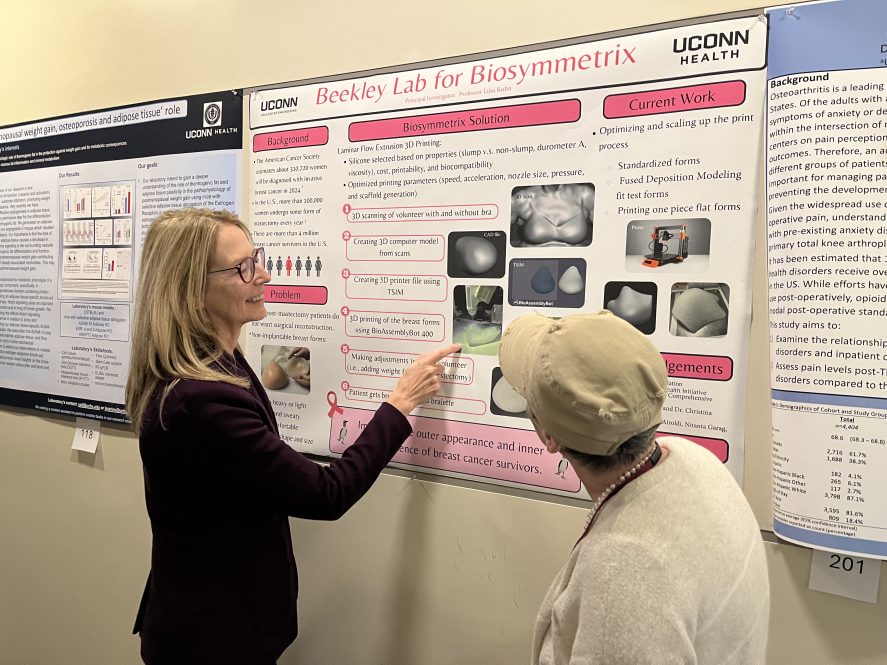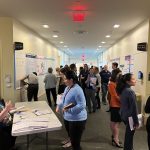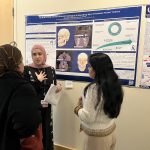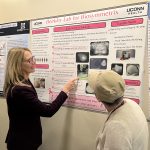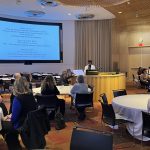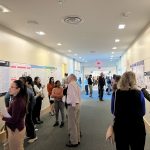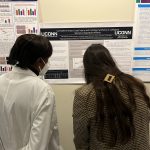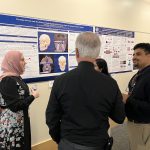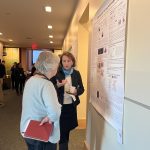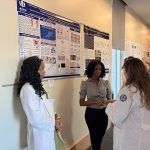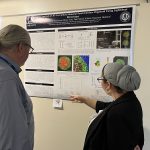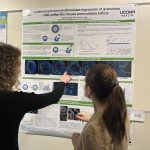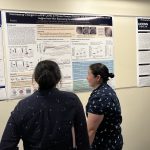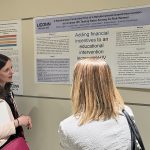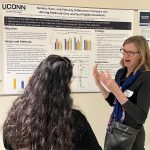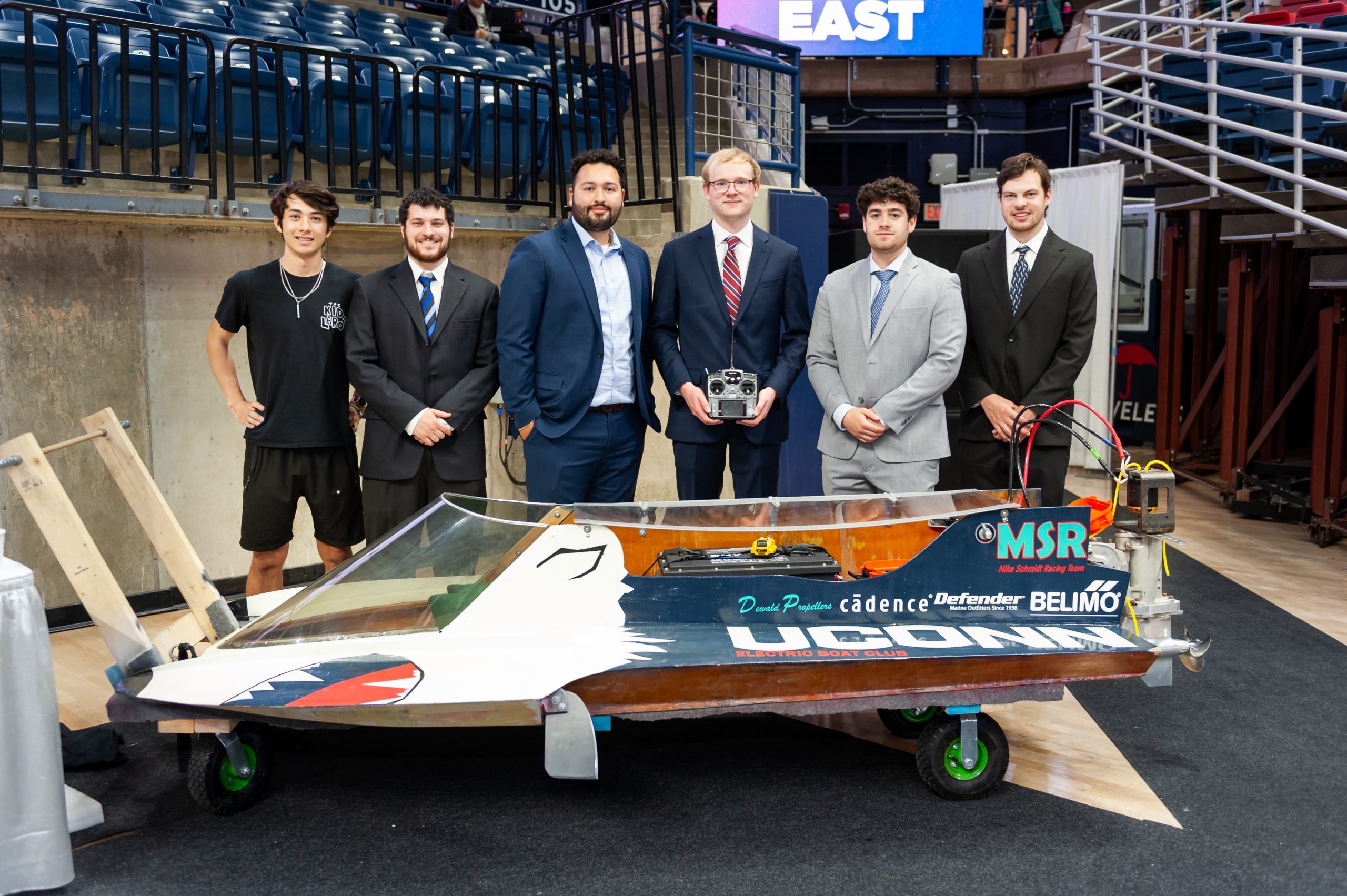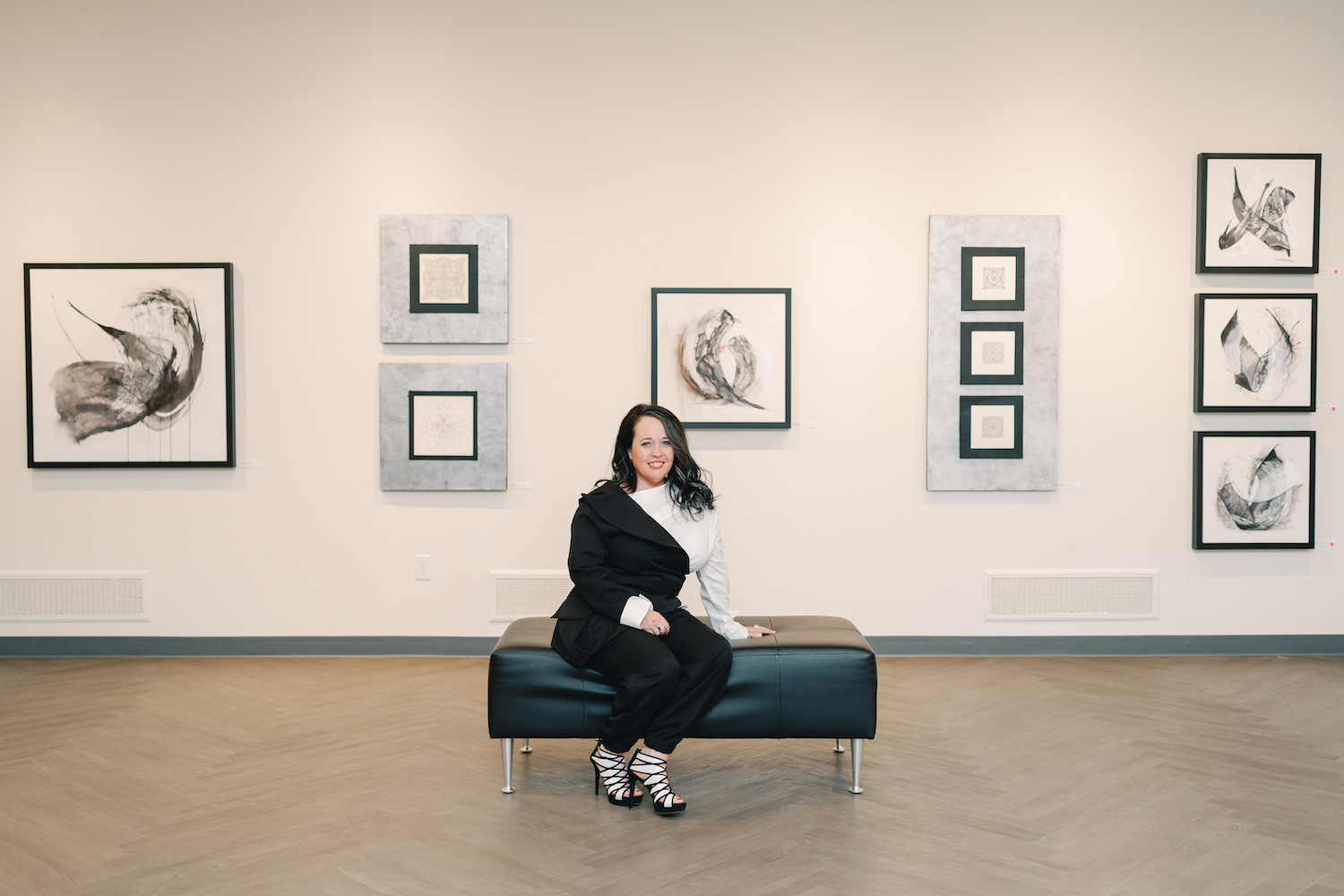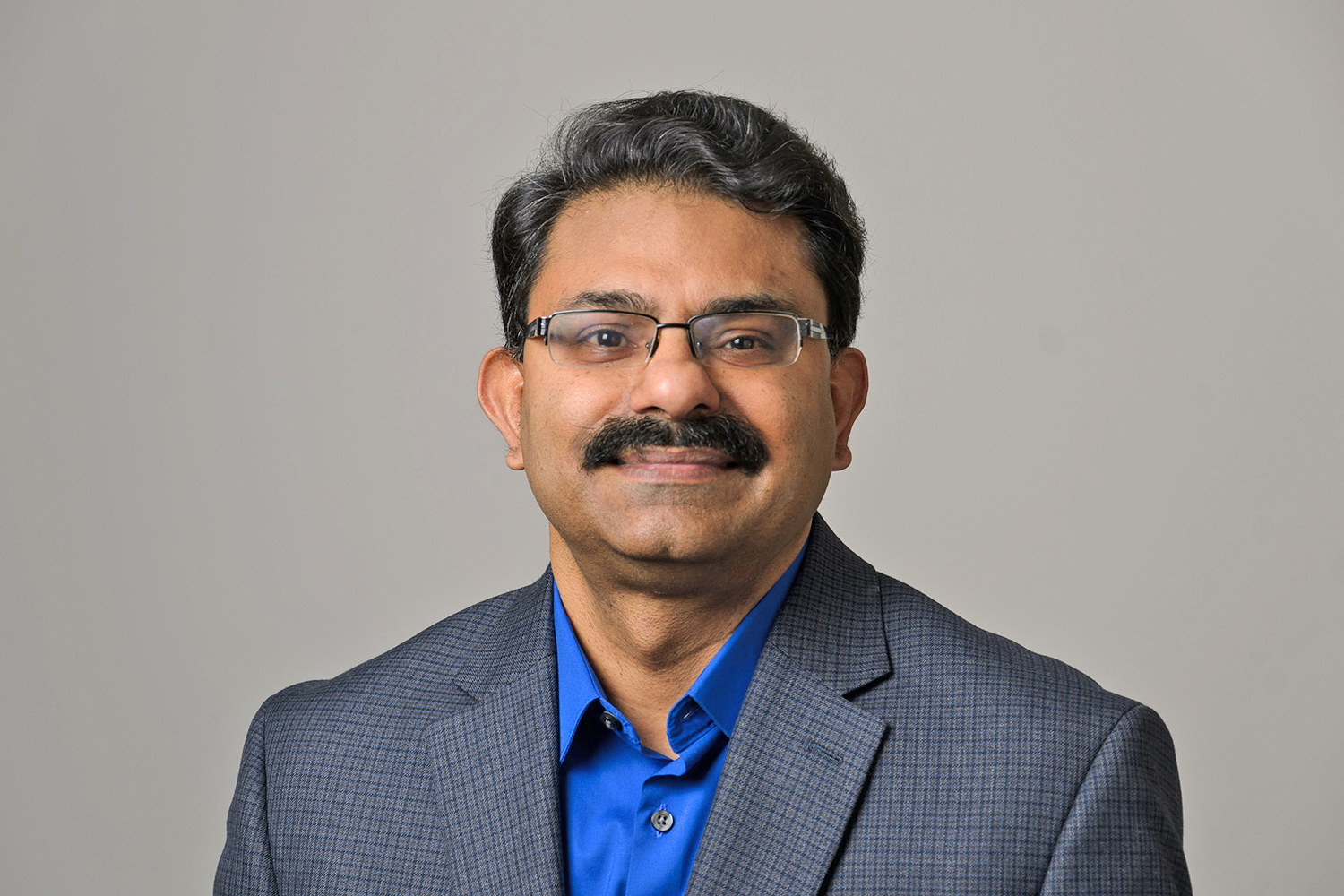President Biden’s State of the Union address just shined light on the critical need for more women’s health research.
“Women are more than half of our population but research on women’s health has always been underfunded,” Biden said. “That’s why we’re launching the first-ever White House Initiative on Women’s Health Research.”
The initiative is led by First Lady Jill Biden. The President called on Congress to pass his plan to invest “$12 billion to transform women’s health research and benefit millions of lives across America.”

The very next day following the State of the Union address, during national Women’s History Month and on International Women’s Day, over 40 female physicians and scientists and their male colleagues gathered on March 8 in the Academic Rotunda at UConn Health to present their latest female health-focused research study findings. The research symposium was organized and hosted by UConn Health’s Group on Women in Medicine and Science (GWIMS).
Remarkably, the event’s prestigious keynote speaker was from the national Initiative on Women’s Health Research: Dr. Janine Austin Clayton is NIH associate director for Research on Women’s Health and director NIH Office of Research on Women’s Health.
In her virtual presentation entitled “From Evidence to Impact: The Power of Research to Improve the Health of Women,” Clayton stressed to the UConn Health faculty and researchers: “We have so much power through research. Our mission is to enhance and expand women’s health research.”
Clayton says, “Team science is not the way of the future, it is how we do our work.”
UConn Health Interim CEO Dr. Bruce T. Liang also spoke at the GWIMS special symposium event.
“Today is history in the making. I am so proud of all our female clinicians and researchers, and physician-scientists across UConn Health. You really are making a big difference in advancing research and the lives of other women,” said Liang during his welcoming remarks. “At UConn – we are so lucky and proud to have the strongest role models to look up to and renowned trailblazers to learn from, like Dr. Marja Hurley and Dr. Laurinda Jaffe.”
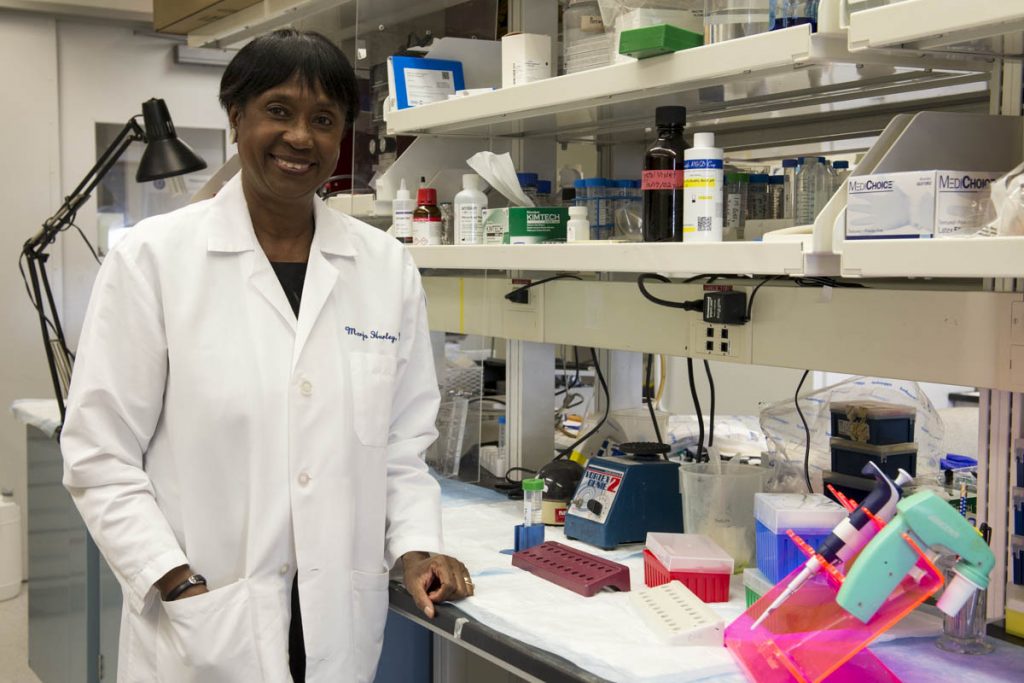
Hurley’s innovative bone research has been funded for three decades by the NIH. She is a tenured full professor of medicine and orthopedics and first Black woman to be appointed a UConn Board of Trustees Distinguished Professor. UConn even named her a pioneering physician-scientist and one of its most outstanding women of its first 100 years.
“For me, it is very important for women physicians and scientists to be included in all research domains and disciplines,” says Hurley. “This symposium is an opportunity for our women faculty to come together with our male colleagues to showcase their research, enhance collaborations, and stay informed.”
Hurley adds: “The potential impact of greater gender-focused personalized research, whether in basic science animal models or human cell lines by gender, can really impact the trajectory for women’s health – and lead to more collaborations among clinicians, basic scientists, and translational researchers, while also improving patient treatments, outcomes, and reducing health disparities.”
Jaffe is professor and chair of the Department of Cell Biology, and a Member of the National Academy of Sciences. Her pioneering NIH-funded research has revealed several major advances in scientific understanding of fertility.
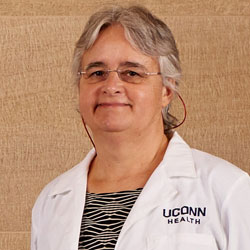
Jaffe says, “The increase in opportunities for women in science and health care over the past 50 years has been amazing, and today’s event celebrates that. I particularly want to thank Dr. Hurley for organizing this celebration.”
Jaffe adds: “It’s also great to see Women’s Health research featured so prominently in the national ARPA-H initiative.”
Jaffe is UConn Health’s only female Member of the National Academy of Sciences.
“Our women at UConn are an inspiration and mentors for the next generation of doctors and scientists, including many women just like you, and their male colleagues too,” says Liang.
The GWIMS Steering Committee Members include both Chair Hurley and Jaffe along with: Rebecca Andrews, M.S., M.D., FACP; Laurinda Jaffe, Ph.D.; Marilyn Katz, M.D.; Liisa Kuhn, Ph.D.; Sherene Mason, M.D., MBA., FAAP; Nilanjana Maulik, Ph.D., FAHA; Veronica Maria Pimentel, M.D., M.S., FACOG; Melinda Sanders, M.D.; Akua Sarfo, M.D., Ph.D.; Pamela Taxel, M.D.; Kristyn Zajac, Ph.D.; and Beiyan Zhou, Ph.D.
Following the successful symposium Hurley concludes, “Our GWIMS chapter at UConn Health hopes this Women’s Health research symposium becomes an annual event.”
